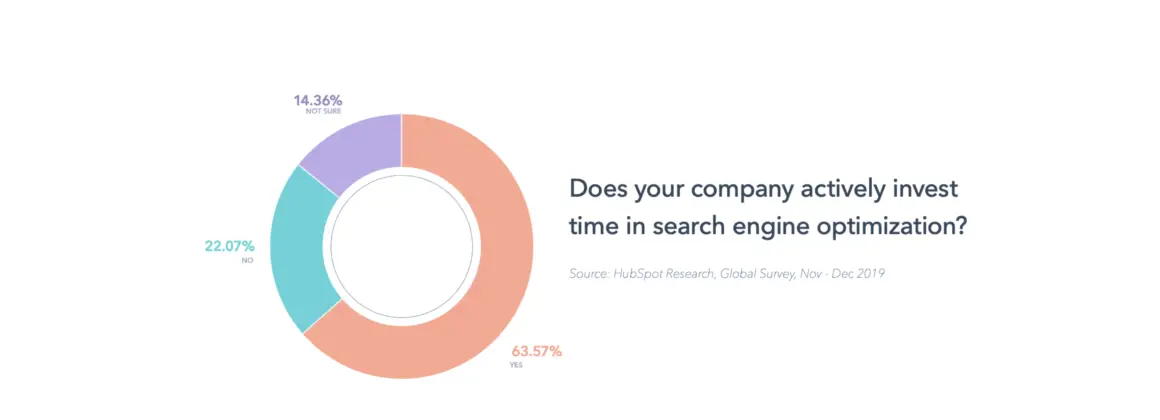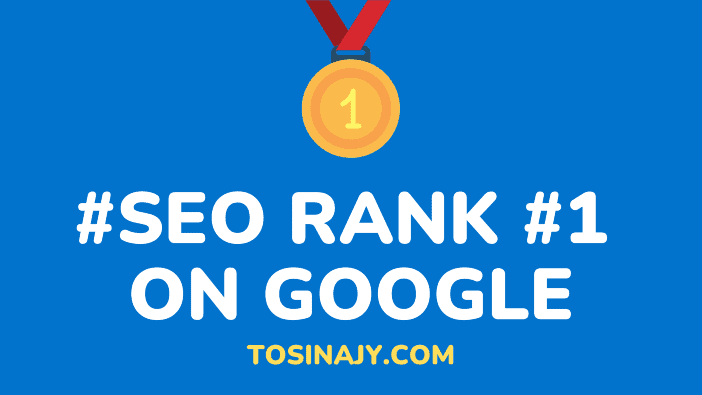According to SEMRush, the majority of companies (67%) use organic traffic to measure their content success. This is why many blog content creators crave to push past 100k visitors as fast as possible. Content marketing success largely depends on effective search engine optimization. This is why about 64% of marketers actively invest time in search engine.
Google regularly updates their algorithms. Bloggers have to go beyond writing unique content to get a higher ranking nowadays. High-ranking blog content is over 5,700 words in length, well-structured for SEO, very relevant to the user, and linked to other websites with high domain authority.
Yes. To rank high on google requires some hard work and strategy. But if you are a newbie, all you need to know to grow your blog is to focus less on prolific content creation. Put more effort into scaling your backlink acquisitions.
If I start a new blog, I try to create 5-10 well-written, long-form articles. Then, I focus all my energy on getting links to these articles rather than writing more content. I target getting at least 1k links from at least 100 referring domains in the first three months. The backlinks will positively influence my organic traffic.
Consistent scaling of backlinks combined with well-structured long-form content will deliver significant success in the coming months.
There are basic SEO techniques you can use to grow your website traffic in less time. These methods include inbound and outbound link building, optimizing the title and heading tags, maintaining adequate key phrase density, enhancing the quality of your content. With these, simple strategies, you can grow your traffic fast.
If you would like to even grow faster and you have a decent budget, I recommend you outsource this to a good white label SEO company that fits your budget.

Here are some top SEO techniques to implement on your content in 2020.
1. Research relevant keywords
Your keyword research must concentrate on 1-2 long-tail keyword that is relevant to your users.
Avoid overloading your content with keywords. This act may have an adverse effect on your search engine optimization rankings. First, create content for your readers. Then you can optimize it for search engines.
Content with 1-2 long-tail keywords that you’d like to rank for helps develop strong material that does not feel unnatural or required. You need to also concentrate on these long-tail keywords since they are longer, provide more user intent, and are usually less competitive.
You can explore various SEO tools to view the keyword “difficulty” score to see just how many competitors are out there for that keyword. If you have a newbie, go for long-tail keywords in the 200-2,000 searches each month with a difficulty rating under 0.2.
2. Put your keyword in target areas of your blog content
The next step is to ensure your chosen keyword can be found in some important sections in your article.
Where are the very best locations to add these keywords so that your search engine optimization rankings are as high as possible? There are 4 main places, outlined below:
Title Tag
The title (heading) of your blog posts will appear on the search engine results page (SERP) and will be the first thing online search engines use to figure out the significance of your content.
Your keyword should appear at the beginning of your title.
Your URL
The online search engine still indexes your URL to find out what your blog post has to do with. It is a good concept to enhance your URLs on every post you release, as each blog post will reside on its own distinct URL.
More than half of your keyword should appear in your URL.
Your Headers and Body
Discuss your target keywords throughout your post’s headers and body content. You need to stick to a natural cadence and not exaggerate it. The number of times your keyword appears in your content is called keyword density.
For instance, you may place your keywords in the H2 headers in form of a question.
“What Are the Best Search Engine Optimization Tips for Bloggers?”
Then your responses to those questions should be listed in numbered H3 headers.
Eventually, you need to write for reader intent. So whenever you’re writing a post, focus on your audience, not the number of times a keyword is on the page.
Your Meta Description
This is the excerpt that appears under your page title on the SERPs. It is really important for click-through-rates. Your goal is to use it to attract users to click on your URL in the SERP.
The keywords inside of the Meta Description as not as essential as the title tag, however a clear description that matches your readers’ intent is an excellent location to begin.
3. Quality Content Always
Google’s most current algorithms are favor content-rich, long-form posts that include things like videos, infographics, and images.
Go for 2,500+ words and if possible 5,700+ words. Articles with 3,000+ words get 3x more traffic, 4x more shares, and 3.5x more backlinks than shorter articles. Simply keep in mind that content quality and importance play a big function in page rankings. Exclusively producing a long post won’t assist your rankings if the content isn’t pertinent to the user’s intent.
4. Connect Building Strategies for Bloggers
Link building is one of the most crucial and most difficult segments of SEO for bloggers. Google sees links to your blog as an indicator of your website’s authority.
Each link is a signal to the search engine that you have a quality, reliable website, and ranks you higher in turn. Bear in mind that the very first key to getting more incoming links is to create material that others will actually wish to share.
Here are some link building ideas for your blog:
Write Guest Posts
A guest post is a post you write for somebody else’s blog site that is important to their audience. You can connect to comparable bloggers in your specific niche.
One simple way to do this is through email or social media. Simply inquire if they accept guest posts on their blog. If they do, produce an overview for them, and compose the content.
Make sure to add 1-2 links to your website. However, only discuss your website when it makes sense to do so that you don’t come across as spammy. Guest blogging requires hard work, but it is an excellent method to build links to your site.
Use internal links
Linking to other pieces of material on your site helps users with website navigation, and can likewise add to your search engine optimization success.
Promote your main pages on your blog on other links and use connect your posts as best as possible.
Develop an infographic
Infographics are visual representations of data. They are worth more than a thousand words. Many readers love infographics. Blog authors love it even more. You create value for authors who are looking for infographics that are easily accessible.
Lots of users will either put it on their website or simply link to your site as the original source of the material if you provide this material away for totally free.
Establish relationships with other bloggers
Genuine relationships are critical to link building. Individuals are much more most likely to help somebody they understand and trust than a complete stranger they have actually never communicated with in the past.
Connect with other bloggers and build relationships. Share their work and collaborate. This is the most effortless, long-lasting link-building strategy.
Whenever you upload an image to your blog, endeavor to add keywords to the file name and fill the alternate text field with a keyword-rich description of the photo. More so, you can add the keywords to the title, description, and caption.
Search engines use alt text to identify images. In addition, appropriate alt text for images improves readability for your readers with special needs.
Adding this alt text to your images will enhance search engine optimization for blog writers.
Summary
These SEO practices maybe a bit challenging. Especially if you’re just starting out. However, I believe you can master these practices over time as you adopt them on your blog.
I do not expect you to include each of these SEO best practices into your blogging technique right asap. As your site develops, you must look to these SEO ideas to help you rank higher organically and eventually monetize your blog site.
If you’re yet to start your blog, I recommend you use WordPress. An excellent plugin called Yoast SEO helps you enforce all these practices.
If you like this article, you can read other guides that can help your online business grow faster.
